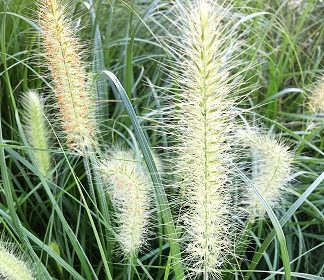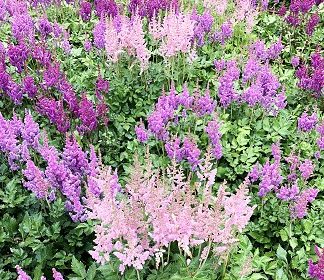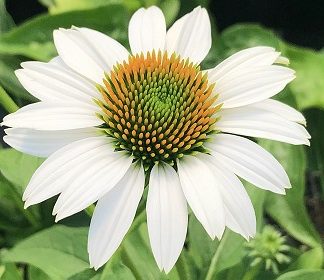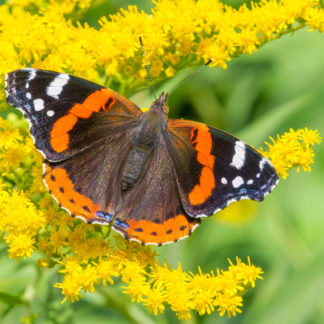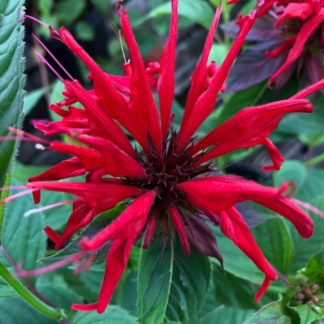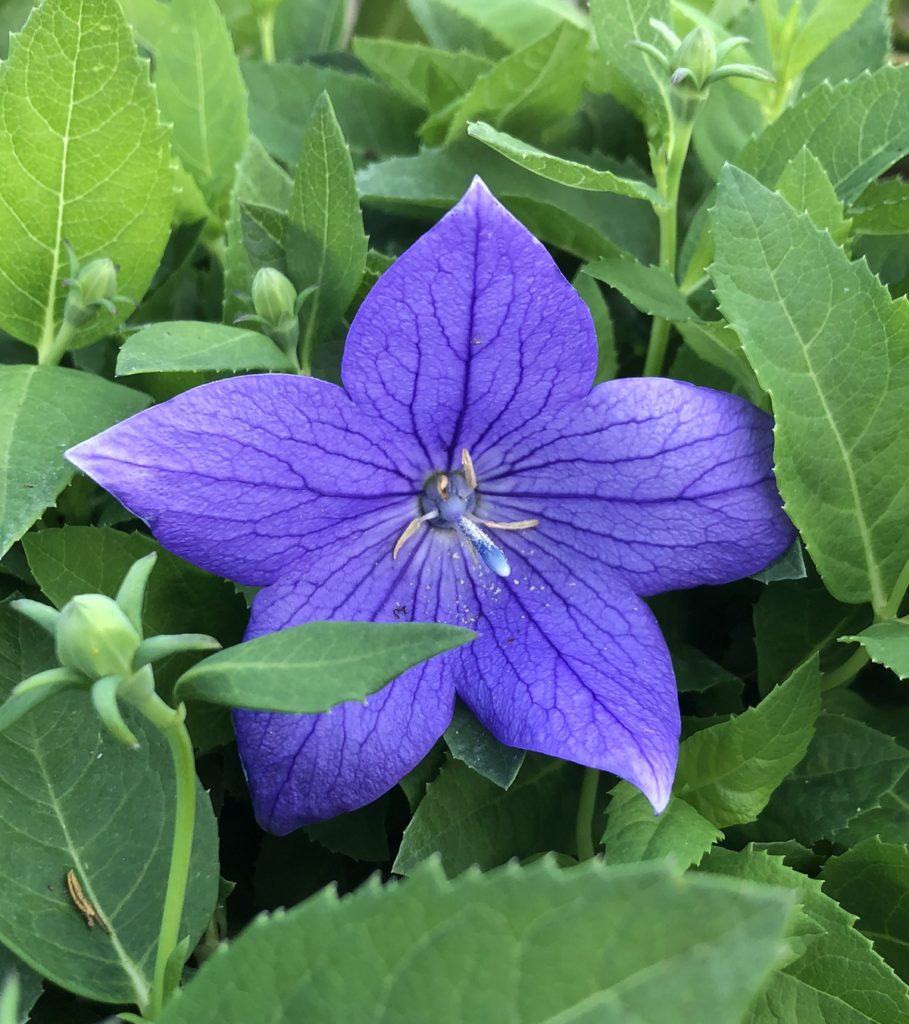Perennials
Perennials are amazing in so many ways. They offer everlasting joy… you only need to plant perennials once and they’ll return for years, blooming all on their own! Most perennials are super tough! They aren’t the kind that gives up after a rough day. Perennials are very resilient, low-maintenance and often long-blooming. Plus, they come in such a wonderful array of sizes, shapes and colors!
More About Perennials
The beauty of perennials is in their great diversity. So, when you have so much to choose from, how do you get started? Many begin with one of these traits: flower type, garden uses, and benefits.
Types of Perennial Flowers:
Flowers come in all sorts of sizes, colors and shapes. Perennials come in every imaginable shade of yellow, blue, purple, red, pink and white. You may want to mix lots of colors together, which lends a joyful feeling to the garden. Very colorful gardens are often informal gardens and the plants are arranged so they grow into and among each other. You’ll also find this concept in both the English Cottage Garden and Natural Garden. It’s interesting to note that beneficial pollinators require many different types of flower shapes and colors, so a diverse collection of plants often makes for an excellent garden for bees, hummingbirds, butterflies and other pollinators.
You may prefer a garden that focuses on just one color. Take moonlight gardens, for instance. Moonlight gardens are heavily planted with white flowers, which reflect the moonlight, illuminating the garden at night. Adding pale blue and lime-green both creates a chill, relaxing garden. On the other hand, lots of orange and red colors heat up the landscape. These bright, warm, colors create energy and are excellent for entertainment areas.
Other than color, one of the most sought-after flower traits is a long bloom time. Many perennials are long-blooming, offering weeks or even months of color! You’ll notice our catalog has an attribute listing for long-blooming. We consider long-blooming as 6 or more weeks in bloom.
If you get creative, you can even choose a series of plants that take turns blooming all season! Choose a few spring, summer, and fall-blooming perennials to achieve non-stop color.
Perennial Garden Uses:
- Perennials as accent plants
One way to attract attention to a part of the garden is by using accent plants. They can be eye-catching in color or striking in shape. Picture a bed of lush perennials, where only type of plant has vertical growth. It’s going to stand out! Some great choices are gayfeather, tall-growing coneflowers and iris are all examples of perennials with a vertical habit.
Another way of creating an accent is to place a planter right where you want to draw the eye, planted with something showy. A few perennials that are stunning as container accents are sedums, coral bells, carex, and creeping Jenny. - Perennials in Natural Gardens
Natural Gardens are planted to be eco-friendly and to support local pollinators and other garden-friendly wildlife. These gardens are heavily planted with self-sustaining or natural perennials that essentially need little to no maintenance. The perennials in a natural planting have a free-flowing growth form. Some perennials that are at home in a natural garden are tickseed, purple coneflower, phlox, and bee balm. - Perennials in English Cottage Gardens
English Cottage Gardens have a romantic collection of perennials, combined to create harmony. They are densely planted, using lots of variety. Plant several of each type of perennial you choose to create an impressive visual. Choose perennials that provide lots of season-long color. A few excellent examples of English Cottage Garden perennials are catmint, yarrow, iris, bluestar creeper, and thyme. - Perennials in Modern Gardens
To create modern plantings, perennials are planted in large swaths or linear patterns. A lot of the perennials are neatly kept, nothing too over-the-top. Often large groupings of singular perennials are planted to create big areas of color. Grasses are heavily used in modern garden designs. For Modern Garden perennials try sedges, feather reed grass, heucheras, and hostas.
Perennial Benefits:
- Attracting Birds and Pollinators
Pollinators and birds are important for both your garden and the ecosystem, so it is important to keep them fed! It is easy to do… most natives, and many other perennials, attract and feed pollinators. You can even tell by the color and the shape of the flower what pollinator it is supposed to attract. As you know, hummingbirds have long thin beaks so they can get deep inside long tubular flowers. Butterflies can prefer certain flower colors. Birds are mostly attracted to perennials for their seeds, so let your perennials go to seed late in the season to feed the birds.A few perennials for pollinators include bee balm, asters, butterfly weed, tickseed, phlox, blazing star, catmint, and hyssop. Plus many more! A few perennials that attract birds for their seeds are purple coneflower, sunflowers, cornflowers, tickseed, and black-eyed Susan. Look through our catalog to find the perfect pollinator and bird garden perennials for you!
- Perennials for fragrance
Lovely fragrance comes in many forms. Or at least the flowers do! There are all sorts of perennial flowers that have a pleasant aroma. Some also have fragrant foliage. You may have to gently rub or crush the leaves to release the fragrance. Fragrant flowers have the added benefit as a cut flower, where you bring the heady fragrance into your home!Don’t forget lavender, the most loved perennial flower fragrance of all! Lavender is grown all over the world for its particularly appealing smell. - Perennials for cut flowers
Collecting cut flowers is a hobby that people everywhere enjoy. You see a pretty flower that makes you smile, and you want to bring it home with you…so you do! Today, many gardeners create gardens that are bursting full of colorful or fragrant flowers with the intent to use them as cut flowers. Some perennial flowers are ideal for flower arrangements because they last a long time in a vase without wilting. Some flowers even dry naturally and can be preserved in dried flower arrangements. Some of the best perennials for cut flowers are peonies, bee balm, black-eyed Susan, blazing star, tickseed, salvias, yarrow, anemone, purple coneflower, and montbretia.

